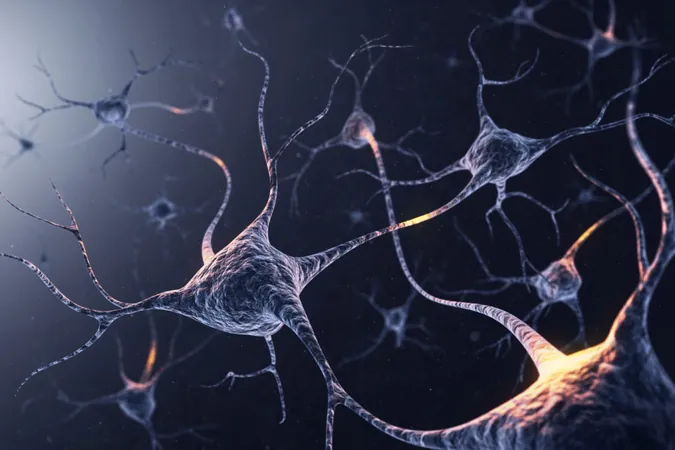
Revolutionary Study Unveils How Our Brains Make Decisions
2025-06-25
Author: Mei
The Brain's Decision-Making Mystery Unlocked
Ever wonder why two people faced with the same situation can come to totally different conclusions? A groundbreaking study from researchers at Princeton University and other institutions has started to unravel this enigma, focusing on how our brain’s neural circuits lead to decision-making.
A New Approach to Understanding Choices
In a fascinating paper published in *Nature*, titled "The dynamics and geometry of choice in the premotor cortex," scientists explored how groups of neurons produce the dynamic choices we make. Their experiments involved training rhesus macaques to discern which color—red or green—was more dominant on a checkered screen, including both straightforward and ambiguous trials.
Neurons: The Unsung Heroes of Decision Making
Using advanced techniques to record neuron activity in the dorsal premotor cortex—a brain area pivotal for action—researchers discovered incredible heterogeneity among neuron responses, even in identical circumstances. According to Dr. Tatiana Engel of Princeton, this variability previously led many to believe that cognitive complexity was at play. However, the team unveiled that a fundamental neural coding principle underpins this complexity.
The Power of Population Coding
Instead of individual neurons calling the shots, it’s the collective activity known as "population coding" that conveys decision information. Through a sophisticated computational model, the authors identified two key features guiding neuron behavior: tuning—and how responsive a neuron is to particular decisions—and neural dynamics, likened to a “potential landscape” that steers neuron activity.
Decisions: A Terrain of Choices
What’s particularly intriguing is how the landscape of these decisions shifts. In easier tasks, the model indicated a steep potential landscape that leads to speedy, confident choices. Conversely, for tougher decisions, a flatter landscape introduces more noise, increasing the likelihood of errors. Despite individual variations in neuron responses, they harmonize under the same guiding landscape, akin to skiers navigating a sloped mountain.
Implications Beyond Neuroscience
This findings not only deepens our understanding of brain function but also has significant implications for disorders like schizophrenia and bipolar disorder, where decision-making processes can go awry. The researchers plan to extend their inquiry into how various neuron types and interactions contribute to the diverse decision-making processes observed.
The Future of Decision-Making Research
As scientists dig deeper into this neural code, the potential to unravel how our brains make decisions opens new avenues for understanding mental health and cognitive functions. This research marks a significant stride toward decoding the complexities of human thought.



 Brasil (PT)
Brasil (PT)
 Canada (EN)
Canada (EN)
 Chile (ES)
Chile (ES)
 Česko (CS)
Česko (CS)
 대한민국 (KO)
대한민국 (KO)
 España (ES)
España (ES)
 France (FR)
France (FR)
 Hong Kong (EN)
Hong Kong (EN)
 Italia (IT)
Italia (IT)
 日本 (JA)
日本 (JA)
 Magyarország (HU)
Magyarország (HU)
 Norge (NO)
Norge (NO)
 Polska (PL)
Polska (PL)
 Schweiz (DE)
Schweiz (DE)
 Singapore (EN)
Singapore (EN)
 Sverige (SV)
Sverige (SV)
 Suomi (FI)
Suomi (FI)
 Türkiye (TR)
Türkiye (TR)
 الإمارات العربية المتحدة (AR)
الإمارات العربية المتحدة (AR)